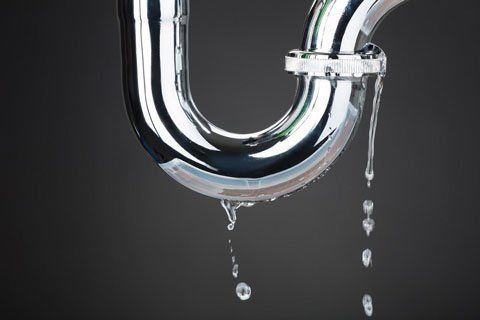Every person will have their unique conception involving Detecting hidden plumbing leaks.

Early detection of dripping water lines can mitigate a possible disaster. Some small water leakages may not be noticeable.
1. Examine the Water Meter
Every home has a water meter. Examining it is a surefire manner in which helps you find leakages. For beginners, turn off all the water resources. Ensure nobody will certainly flush, utilize the tap, shower, run the washing device or dish washer. From there, most likely to the meter and watch if it will certainly transform. Since nobody is utilizing it, there need to be no movements. That suggests a fast-moving leakage if it moves. If you identify no changes, wait an hour or two and also check back again. This implies you might have a slow-moving leakage that can even be underground.
2. Examine Water Intake
If you find sudden changes, despite your consumption being the very same, it suggests that you have leakages in your plumbing system. An unexpected spike in your expense suggests a fast-moving leak.
Meanwhile, a steady rise on a monthly basis, despite having the same routines, shows you have a slow-moving leak that's additionally slowly escalating. Call a plumber to extensively examine your residential or commercial property, especially if you feel a warm area on your floor with piping below.
3. Do a Food Coloring Examination
When it comes to water consumption, 30% comes from commodes. If the color somehow infiltrates your dish during that time without flushing, there's a leakage between the storage tank and dish.
4. Asses Exterior Lines
Do not forget to examine your outside water lines also. Test faucets by connecting a garden pipe. Should water permeate out of the connection, you have a loosened rubber gasket. Change this as well as ensure all links are limited. If you've obtained a lawn sprinkler, it will certainly assist get it properly examined as well as kept yearly. One little leak can lose tons of water as well as increase your water bill.
5. Examine and also Analyze the Situation
House owners need to make it a habit to check under the sink counters as well as also inside closets for any kind of bad odor or mold development. These 2 red flags indicate a leak so timely interest is needed. Doing regular inspections, even bi-annually, can save you from a major issue.
Examine for discolorations and also deteriorating as a lot of devices as well as pipes have a life expectations. If you believe dripping water lines in your plumbing system, don't wait for it to escalate.
Early discovery of leaking water lines can reduce a potential calamity. Some small water leaks may not be visible. Inspecting it is a surefire means that helps you discover leakages. One small leakage can throw away loads of water and also surge your water costs.
If you presume dripping water lines in your plumbing system, do not wait for it to intensify.
5 Signs that Your Home Has a Hidden Leak
Your water bill is unusually high without explanation
Generally, your water bill tends to stay consistent throughout the year as long as the same number of people live in your household year round. The bill might be higher during certain times of the year, such as summer, when your lawn may require more watering than it does in cooler months. However, if you notice a rise in your water bill that you can’t explain, it’s an indicator that there’s a hidden leak somewhere in your home.
You hear running water
One of the biggest signs that you have a water leak is the sound of rushing water when no plumbing fixtures are on and when no water-using appliances are running. If you hear running water in your walls when no water is being used anywhere in your home, locate your home’s main water shut-off valve, shut off your water supply, and contact a plumber at once.
Your home smells musty
Hidden leaks often occur in dark spaces, such as behind walls or under carpeting. Incidentally, darkness and moisture can create an ideal breeding environment for mold or mildew. If you start to smell mildew or the scent of rotting wood or stagnant water around your home, it’s a fair bet that a leak is the culprit.
You find wet spots around your home
The wet spots usually show up as moist areas in your carpeting. If your home has a basement level, puddles on the floor could indicate a slab leak. Outside, unexplainable puddles or lush, green patches in your yard often mean that there’s a leak in your sewer line or main water line.
You have stains, bubbles, or condensation on your walls/ceiling
Stains or condensation on your walls or ceiling are both major signs of a hidden leak. Also, drywall (AKA. sheetrock) is very absorbent, and as it takes on more water from a leak behind a wall, it will start to bubble, swell, or warp. If you see this happening in your home, don’t wait to contact a plumber before the water damage spreads.
https://www.ezflowplumbingaz.com/blog/2019/june/5-signs-that-your-home-has-a-hidden-leak/

We were guided to that editorial about Leaking water lines through someone on our other web blog. In case you enjoyed our blog post plz do not forget to share it. I take joy in reading our article about Hacks to detect leaks.
Comments on “Exactly how to Check If Your Home Has a Surprise Leakage”